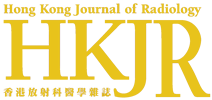The Evolving Role of Anti-angiogenic Agents for Ovarian Cancer Therapy
RA Burger
Hong Kong J Radiol 2011;14(Suppl):S12-8
Angiogenesis, or the development of micro-vascular (blood and lymph) networks from established vasculature, is a process fundamental to proliferation, invasion and metastasis of ovarian cancer and other solid tumours. The initiation and maturation (remodelling) phases of angiogenesis are orchestrated by distinct growth factor– based signal transduction pathways operating in both sequential and parallel fashion. Therapeutic efficacy of anti-angiogenic agents in the treatment of ovarian cancer has been demonstrated in phase III trials of the anti– vascular endothelial growth factor (anti-VEGF) humanised monoclonal antibody bevacizumab, and in phase II trials (phase III trials in progress) of (a) multi-targeting inhibitors (e.g. BIBF 1120, pazopanib, and cediranib) of VEGF (plus platelet-derived growth factor and fibroblast growth factor) receptor tyrosine kinase domains, and (b) AMG386, a fusion protein blocking signalling of angiopoietin-2. This article focuses on evolving therapeutic considerations in the development and integration of anti-angiogenic therapy for patients with ovarian cancer, and in the process addresses some of the following quandaries. What might be the optimal duration of anti-VEGF therapy? How safe is anti-VEGF therapy in women with this disease? Should anti-angiogenic and cytotoxic agents be combined, or used in sequence? Is there any evidence that some tumours/patients may benefit from angiogenesis-targeted therapy more than others? What are the potential advantages versus disadvantages of multi-targeting over pure anti-VEGF inhibition? What are some of the newer agents under investigation?
中文摘要
針對治療卵巢癌的抗血管新生藥物的進程
RA Burger
血管新生,即指由現有脈管系統發展成一個微血管(包括血液和淋巴)網絡,是導致卵巢癌和其他 腫瘤的細胞增殖、侵襲甚至轉移過程的根源。以生長因子為本的信號轉導途徑以串行和並行方式影 響血管新生早期和成熟期(即改造期)的發展。針對治療卵巢癌的抗血管新生藥物,其治療成效可 見於抗血管內皮細胞生長因子(即抗VEGF)擬人化單克隆抗體bevacizumab的第三階段試驗,以及 (1)多定向VEGF〔包括血小板衍化生長因子和成纖維細胞生長因子〕受體酪氨酸激酶領域抑制劑 (如BIBF 1120、pazopanib和cediranib)和(2)用作阻攔血管生成素-2發出信號指令的融合蛋白AMG 386的第二階段試驗(第三階段正進行中)。本文探討針對卵巢癌患者的抗血管新生治療發展和整合的進程,以及提出下列疑問:何時是進行抗VEGF療法的最佳時間?對卵巢癌患者來說,抗VEGF療 法有多安全?抗血管新生藥可否結合化療藥物作合併使用,抑或須順序使用?有什麼證據支持部分 癌症/患者可受惠於針對血管新生的療法?多定向與單一抗VEGF治療的潛在優勢和缺點是什麼?有 什麼新藥正進行研究?

